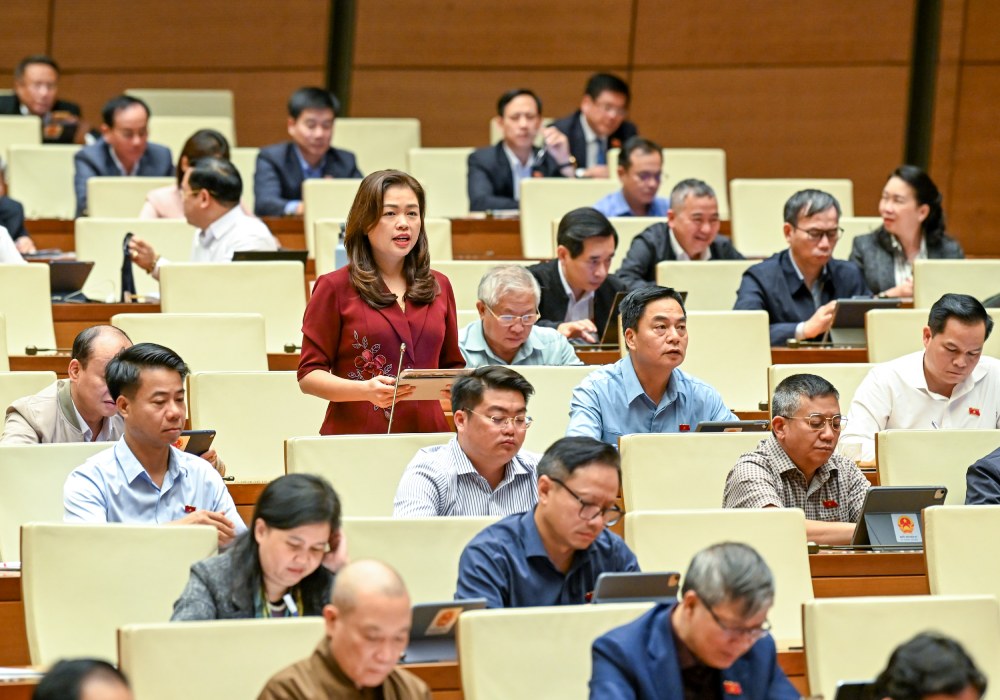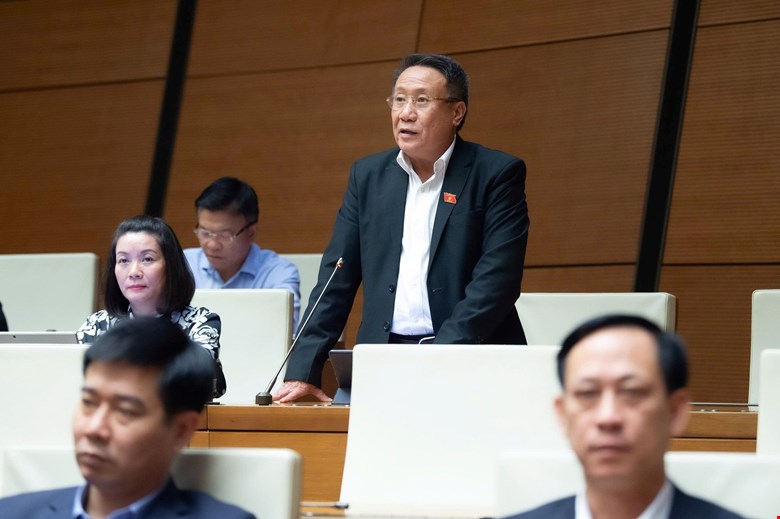Protecting ideological security and cognitive security in the AI era
The draft Press Law (amended) will be considered and approved by the National Assembly in early December.
Delegate Pham Trong Nhan (HCMC) said that the draft Press Law was amended in the context of the global information space changing radically due to the impact of artificial intelligence.
The speed of data dissemination is far beyond human verification, turning information into a new form of power, even a "new weapon", posing a challenge to non-traditional security for ideological security, cognitive security and social security.
Therefore, amending the Press Law must create a strong enough legal framework to protect ideological security and cognitive security in the AI era.
The delegate proposed 4 key groups of contents.
First, it is necessary to supplement regulations on press works with artificial intelligence elements, requiring press agencies to announce the level of AI intervention and be responsible for the accuracy and objectivity of the content.
This is a standard that has been applied by the EU, UNESCO and many countries, to prevent AI from becoming an unknown journalist.
Second, regarding the responsibility of press agencies and journalists, the delegate proposed to add the obligation to independently verify content with AI elements; require journalists to identify, warn and not use AI content that has not been verified according to internal procedures.
Third, regarding cross-border platform management, delegates emphasized that the draft Law needs to have separate regulations that bind platforms such as Facebook, YouTube, TikTok. These platforms must have a legal representative in Vietnam, publicize content proposal algorithms, remove fake news within 24 hours, identify accounts, cooperate in tracking manipulative campaigns and connect the AI system to provide early warnings to authorities.
Fourth, add articles on "Protecting victims of information manipulation", including the right to request correction, the right to trace the origin of fake news and the compensation mechanism for damages according to the law.
Delegate Pham Trong Nhan emphasized that the press is not only a source of news but also a "perceptive shield", a "mental fire", protecting the ideological foundation of the Party and national sovereignty.
Without a strong, accurate press capable of using AI, bad and toxic information will overwhelm legitimate information, allowing algorithms to lead the public instead of the truth. At that time, information sovereignty can be violated in daily life.

Proposal to add regulations on protecting the safety of journalists
Concerned about the regulations on the rights and obligations of journalists, delegate Doan Thi Le An (Cao Bang delegation) stated that recent experiences show that many journalists when working at hot spots have faced high risks in terms of life and health, being hindered or lacking timely support. Meanwhile, the draft law does not fully stipulate the responsibility to protect journalists in these situations.
The delegate suggested that it is necessary to consider adding regulations on the right to protection the safety of journalists when working in risky situations, including: natural disasters, fires, accident scenes, unsafe areas, or sensitive security and order settings.
The addition of the above regulation is necessary to ensure people's access to information; protect the safety of life and health of press forces; at the same time, create a unified legal basis for authorities to coordinate in supporting journalists at the scene; in accordance with international practices on the protection of reporters when working in dangerous areas.

Delegate Ha Sy Dong (Quang Tri Delegation) also said that press activities for investigation, corruption prevention, and work in disaster areas, remote areas, etc. still have many potential risks.
Therefore, the delegate proposed to add regulations on "journalist protection coordination mechanism" between press agencies - local authorities - police forces when there are signs of threat or obstruction of work. At the same time, perfect the process of strictly handling violations to ensure deterrence.











